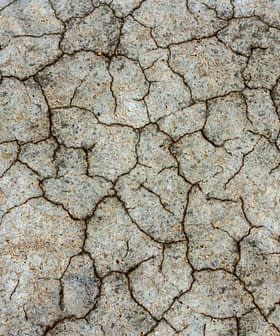 69.8K reads
69.8K readsNews Briefs
Olive Oil Consumption Increases Testosterone in Men With Insufficient Levels
A study found that low-fat diets may decrease testosterone levels in men, with supplementation of extra virgin olive oil potentially helping to counteract this effect. The researchers suggest that diets high in monounsaturated fats, like olive oil, may boost testosterone production, which is important for male health, especially as testosterone levels have been steadily decreasing in men from industrialized countries since the 1970s.
Newly-published research shows that following a low-fat diet may lower testosterone levels in men by up to 15 percent.
While the study suggests that low-fat diets may negatively impact the production of the important hormone, one of its co-authors said supplementing with extra virgin olive oil may help.
Our study indicates that diets high in monounsaturated fats may boost testosterone production.
“Our results show that going from a diet of 40 percent fat to a diet of 20 percent fat decreases testosterone levels by about 11.5 percent on average, and 15 percent in men of European descent,” said Joe Whittaker, co-author of the study and a nutritionist and researcher at the University of Worcester.
“To put this into context, most men in Western countries eat around 35 percent [fat in their diet],” he told Olive Oil Times. “So, if these men try a low-fat diet, their testosterone will probably decrease.”
See Also:Health NewsThe researchers selected six previous studies to gather and analyze testosterone variations on a sample of 206 participants. These studies found that testosterone production may be boosted by high intakes of monounsaturated fats such as those found in olive oil, avocados and nuts.
According to the study’s authors, there is scientific evidence about a superior efficacy of higher fat diets than low-fat diets.
“This is particularly true with diets high in healthy fats such as monounsaturated and polyunsaturated fats,” Whittaker said. “The Mediterranean diet is a perfect example of this.”
“Our study indicates that diets high in monounsaturated fats may boost testosterone production,” he added. “This is supported by other research. For instance, one study found that replacing butter with olive oil increased men’s testosterone by 17.4 percent.”
Whittaker emphasized that olive oil consumption is a safer way for men to optimize testosterone levels, which are critical for male sexual and mental health, while not increasing their risk of heart disease.
“Many studies link low testosterone to depression, cardiovascular disease, diabetes, Alzheimer’s disease and other diseases,” Whittaker said. “Although these studies are only associations, there are some strong causal links between low testosterone and an increased risk of disease.”
He also emphasized how previous meta-analyses found that giving testosterone replacement therapy to men with low testosterone and diabetes improved their wellbeing.
See Also:Europe Limits Use of Trans Fats in FoodsThe researchers have also speculated that the lower testosterone levels induced by low-fat diets might occur more often in men of European descent. Whittaker said he thinks this may be due to the evolutionary history of men with European ancestry.
“Plants do not grow well in the winter, particularly in Northern Europe, so our ancestors were forced to survive on high-fat animal foods,” he said.
After the agricultural revolution, which took place about 10,000 years ago, Whittaker said that Europeans continued to eat high-fat diets, with dairy and cheese becoming a staple.
“Also, olives have been a staple crop in the Mediterranean for thousands of years, so there is probably some adaptation to a high-fat diet in those areas too,” he said. “In contrast, if you think of somewhere like Japan, their traditional diet is heavy in rice and seafood and is essentially a low-fat diet.”
Whittaker theorizes that populations that evolved eating a low-fat diet were less likely to have their testosterone levels negatively impacted but emphasized that further research is needed to confirm this.
Whittaker said that the researchers are currently investigating the steady decrease of testosterone levels in men from industrialized countries, which has been happening since the 1970s.
“The research so far has largely focused on charting the decline in testosterone,” Whittaker said. “There has also been a lot of research into the decline in sperm counts. A large study found sperm counts have decreased by 59.3 percent in Western countries from 1973 to 2011.”
“So, we can see male reproductive health across the board (testosterone and sperm levels) is declining quite rapidly,” he added.
While chemicals in plastics and other consumer goods probably play a role in what is happening, another factor is diet, said the researcher.
“Diet quality has decreased, and processed food intake has increased,” Whittaker said. “Obesity and diabetes have risen dramatically since the 1970s, obesity has nearly tripled worldwide since 1975, and both of these have strong adverse effects on testosterone levels.”









